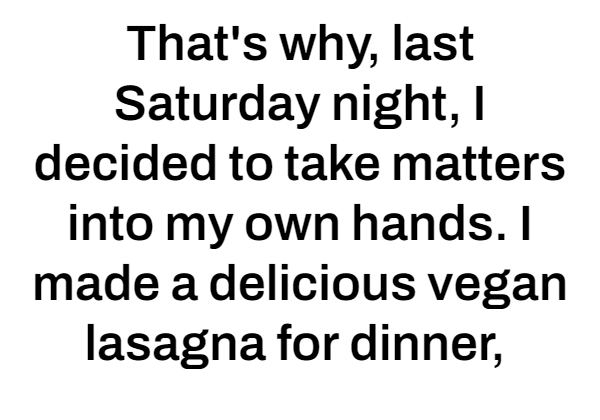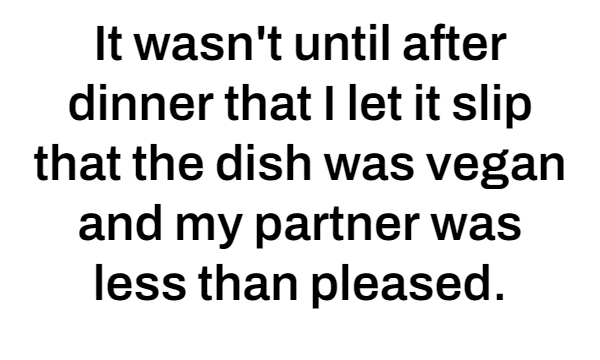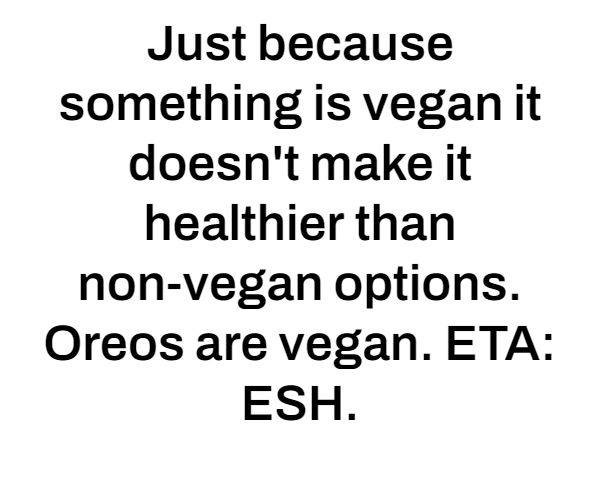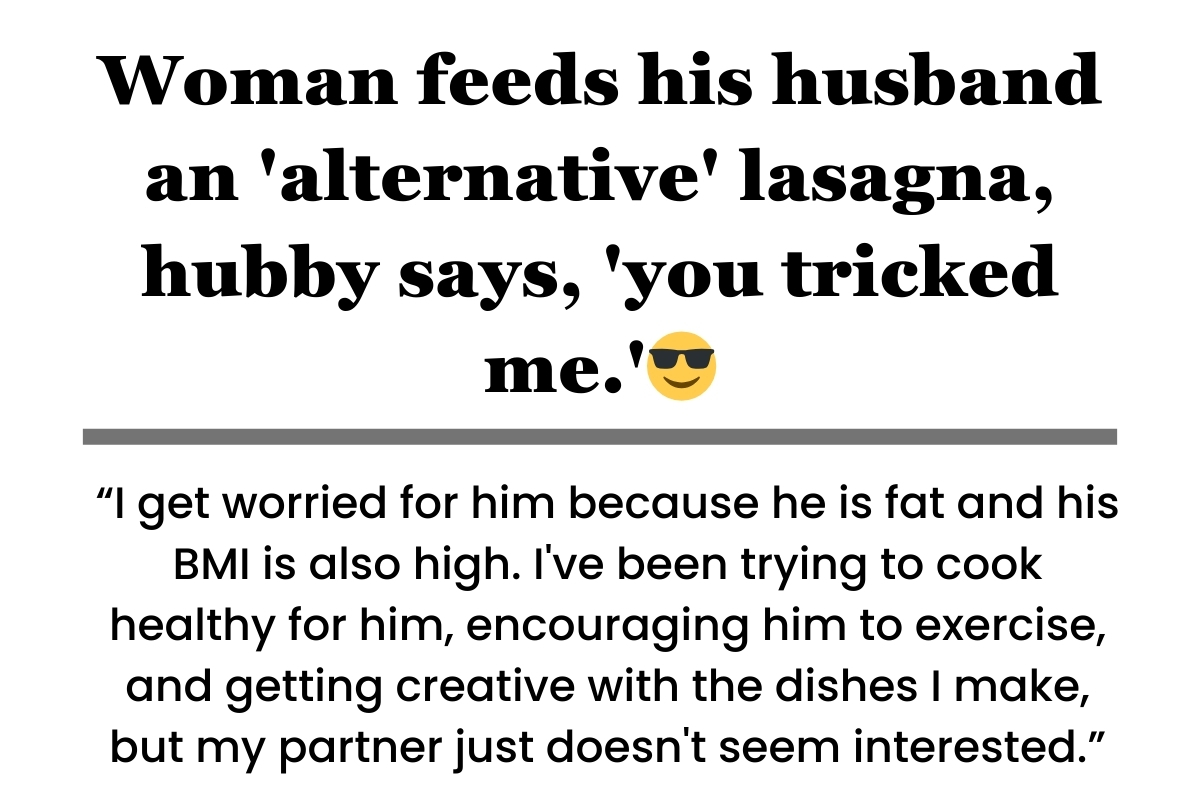‘AITA for tricking my partner into eating an alternative lasagna?’

Image credits: Towfiqu barbhuiya (not the actual photo)




Image credits: Vitaly Gariev (not the actual photo)


In this situation, a 43-year-old vegan husband decided to serve his 48-year-old partner a fully plant-based meal without revealing its vegan nature. The husband, concerned about his partner’s health and high BMI, sought to encourage healthier eating habits through a discreet approach. He prepared a vegan lasagna, which his partner enjoyed immensely.
However, the enjoyment turned to dissatisfaction once the partner discovered the meal was vegan. The husband defended his choice by citing health concerns, but his partner criticized the method as deceptive and immature.
The opinions on this matter vary. Some argue that tricking someone into eating vegan food does not necessarily improve their health, as not all vegan options are inherently healthier than their non-vegan counterparts. For instance, some processed vegan foods, like Oreos, can be unhealthy. The real key to a nutritious diet involves avoiding refined sugars, flours, and processed foods, rather than focusing solely on veganism.
Others support the husband’s intention but criticize his method. They note that while it’s acceptable to introduce plant-based meals, deceiving someone into eating them can undermine trust. They argue that a direct conversation about health and dietary choices would be a more mature approach. Additionally, it is emphasized that forcing or tricking someone into dietary changes is unlikely to lead to meaningful improvements in health or weight.
The discussion underscores the importance of clear communication and respect in addressing health concerns within a relationship.
Let’s find out.
laurajodonnel writes:



